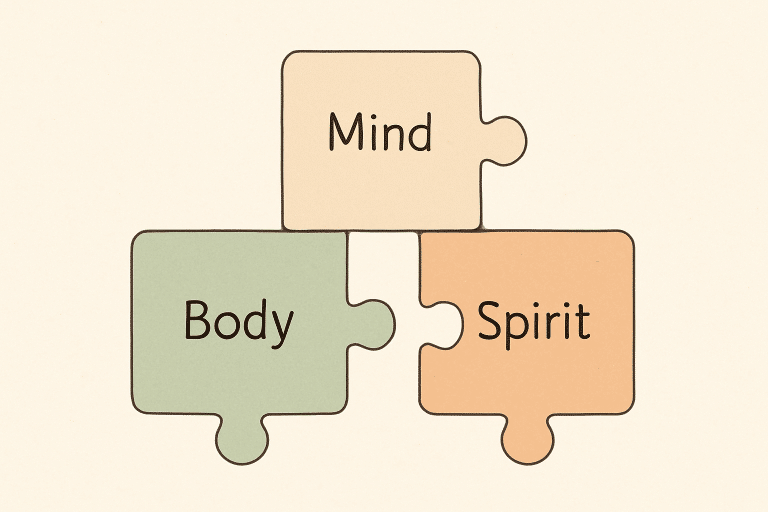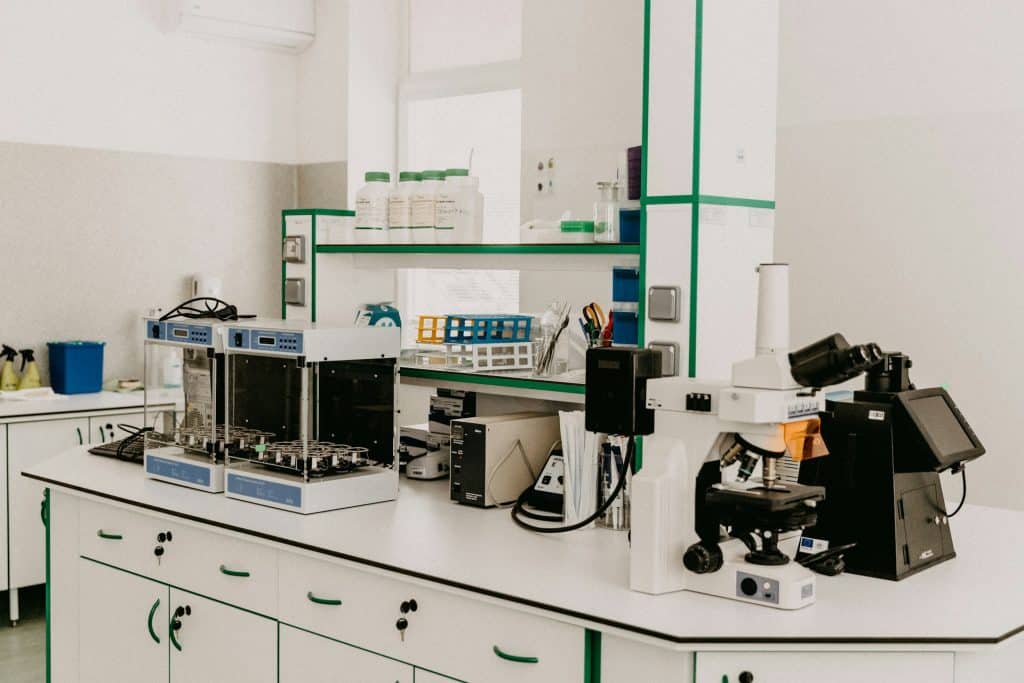Key Takeaways
- Holistic recovery recognizes the interconnectedness of mental, physical, and spiritual well-being, treating the individual as a whole rather than focusing solely on symptoms or behaviors.
- Mindfulness, nutrition, and social support all play integral roles in creating a healthy recovery process that nourishes every aspect of a person’s existence.
- Personalized approaches foster empowerment and sustainability in sobriety by adapting to an individual’s unique needs, values, and life circumstances.
Recovery from addiction is an ongoing, deeply personal journey that requires dedication, self-compassion, and consistent effort. Each person embarks on this process with their own unique history, challenges, and aspirations, making no two paths to wellness exactly alike.
While the road to recovery can feel isolating at times, integrating holistic approaches provides a nurturing environment that supports healing of the mind, body, and spirit. By broadening the focus beyond immediate symptoms and addressing all dimensions of health, holistic recovery offers individuals renewed hope for lasting transformation.
Suppose you or someone you care about is seeking support and guidance during any stage of recovery. In that case, https://numarecoverycenters.com/ offers resources and a compassionate community designed to help you navigate this important life change.
Embracing holistic recovery means viewing physical, mental, emotional, and spiritual care as interconnected and equally important components of the healing process. Instead of relying solely on abstinence or medication, holistic pathways encourage the use of integrated practices that address a person’s total well-being.
By harnessing the strength of supportive communities, understanding the power of mindful living, and recognizing the significance of personal empowerment, individuals can achieve more fulfilling and sustainable outcomes in their recovery process.
Understanding Holistic Recovery
Holistic recovery acknowledges that true healing from addiction requires attention to every aspect of a person’s life. Rather than concentrating exclusively on the outward signs of substance use disorder, holistic pathways address the underlying factors that often fuel addiction—such as unresolved emotional trauma, chronic stress, physical health challenges, and spiritual disconnection.
This multifaceted approach urges individuals to consider the balance and resilience of their whole self, leading to a deeper sense of well-being and increasing the likelihood of long-term success in recovery.
This integrated method invites individuals to examine lifestyle choices, thought patterns, relationships, and core belief systems. By intentionally healing the mind, body, and spirit, people can experience greater joy, stability, and personal fulfillment, making a lasting recovery not only more attainable but also more rewarding.

Mindfulness and Meditation
Central to any holistic recovery journey is the intentional practice of mindfulness and meditation. This evidence-based technique cultivates greater self-awareness by training individuals to observe their thoughts, emotions, and cravings nonjudgmentally.
Through regular mindfulness practice, people develop the ability to respond rather than automatically react to challenging situations or triggers associated with substance use. This increased emotional regulation supports long-term sobriety by helping individuals pause, assess their options, and choose healthier responses in moments of stress or temptation.
Meditation practices, including deep breathing exercises, progressive muscle relaxation, and guided visualizations, serve as powerful tools to minimize anxiety and promote emotional stability. These exercises help quiet the mind, activate the body’s relaxation response, and offer a sense of grounding that can be crucial during turbulent periods of change.
Studies highlighted in Psychology Today demonstrate that mindfulness not only improves mood and reduces anxiety but also fosters resilience, encouraging individuals to persevere through the ups and downs of recovery.
Nutrition and Physical Health
Physical wellness is a foundational pillar in the holistic recovery process. Substance use often depletes the body’s reserves of essential nutrients, disrupts organ function, and increases the risk of developing chronic health issues. By emphasizing the restoration of physical health through balanced nutrition, individuals can replenish vital energy and support brain function.
Consuming nutrient-rich foods—including lean proteins, whole grains, fruits, and vegetables—can stabilize blood sugar, lift mood, and reduce the intensity of cravings over time.
In addition to nutrition, incorporating regular movement and exercise supports both the mind and body during the recovery process. Activities such as walking outside, practicing yoga, engaging in team sports, or performing strength-training routines trigger the release of endorphins—chemicals in the brain that naturally boost feelings of well-being.
Exercise also improves sleep and cognitive clarity and helps repair the body from the wear and tear caused by addiction. According to Healthline, the combined benefits of good nutrition and physical self-care not only lower the likelihood of relapse but also lay the groundwork for holistic wellness that lasts well beyond initial sobriety.
Community and Peer Support
Recovery should never be a solitary effort. Building genuine connections with others who understand the struggle of addiction fosters validation, acceptance, and encouragement. Supportive social networks can take many forms, from in-person group therapy sessions and traditional 12-step programs to mentorship relationships and virtual peer groups.
The act of sharing challenges, strategies, setbacks, and triumphs in a safe, nonjudgmental environment helps break the isolation that often accompanies recovery. It also provides individuals with vital accountability and real-world advice, increasing the chances of sustained sobriety.
Communities that center on empathy, mutual respect, and shared growth have been shown to reinforce self-worth and resilience in the face of adversity. Reaching out to form authentic relationships empowers individuals to tap into collective wisdom, reduce feelings of shame, and draw on the collective strength of the group when facing obstacles. This shared journey underscores that no one is alone—and that long-lasting healing is nurtured by collective support.
Integrating Holistic Therapies
Complementary therapies—including yoga, acupuncture, massage, and expressive writing or art—introduce new, healthy ways to process emotions, relax the nervous system, and foster self-discovery. Yoga, which integrates breathwork with mindful movement, improves flexibility, calms the mind, and helps regulate the body’s stress response.
Art and music therapy enable individuals to explore complex emotions creatively, often promoting healing in areas where words alone may be insufficient.
Acupuncture, a traditional practice rooted in Eastern medicine, is used to manage pain, soothe withdrawal symptoms, and rebalance the body’s natural energy pathways. These holistic methods can be tailored to each individual’s preferences and help build an expanded toolkit of healthy coping mechanisms. The aim is not only to alleviate symptoms but also to facilitate recovery through the exploration of new interests and the development of self-soothing strategies.
Personalized Recovery Plans
No two people experience addiction or recovery in the same way. What works for one person may not suit another. That’s why holistic recovery programs are most effective when they embrace personalization—tailoring interventions, routines, and supports to match each individual’s unique background, strengths, and aspirations.
Customized recovery plans may include a blend of talk therapy, complementary modalities, recreational activities, medical care, and social services that adjust over time.
By working with professionals and trusted supporters to design a plan that evolves in line with their needs, individuals experience increased engagement, satisfaction, and ownership in their recovery process. Personalization ensures flexibility, helps prevent burnout, and supports autonomy—ultimately empowering individuals to take an active, hopeful role in rebuilding their lives.
Conclusion
Holistic recovery isn’t simply about breaking free from addiction—it’s a powerful, ongoing process of rediscovering joy, meaning, and connection in every area of life. By weaving together the practices of mindfulness, good nutrition, regular physical activity, a supportive community, and individualized therapeutic interventions, individuals can create a robust framework for transformation.
These holistic pathways foster resilience and adaptability, giving people the resources needed not just to survive but to thrive in their renewed lives. Investing in your whole self through holistic recovery creates opportunities for growth, purpose, and lasting well-being that can positively impact every aspect of your life.




































